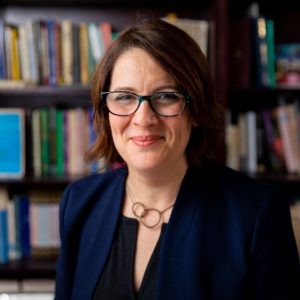Reflections from a Sit-At-Home Rabbi
 One of my favorite books is called Don’t Just Do Something, Sit There. The book is by Sylvia Boorstein, author of the equally powerful work, Funny You Don’t Look Buddhist: On Being A Faithful Jew and Passionate Buddhist. There, in the opening pages, Ms. Boorstein explains that as an observing Jew and practicing Buddhist she is “grateful to know two vocabularies of response.”
One of my favorite books is called Don’t Just Do Something, Sit There. The book is by Sylvia Boorstein, author of the equally powerful work, Funny You Don’t Look Buddhist: On Being A Faithful Jew and Passionate Buddhist. There, in the opening pages, Ms. Boorstein explains that as an observing Jew and practicing Buddhist she is “grateful to know two vocabularies of response.”
For me, the most precious aspect of working in a multi-faith context is my ever-expanding exposure to the rich and diverse variety of vocabularies-of-response to the rich and diverse experience of living.
Sometimes, exposure to different practices galvanizes personal searches for parallels within my own tradition. Other times, bearing witness to other peoples’ religious experiences leaves its own indelible imprint on my heart, and it is deeply gratifying simply to leave it at that. Sometimes, I find others’ practices confounding or conflicting with my own, but my care and admiration for the practitioner sends me on a journey of investigation, inquiry, and ultimately of learning across difference.
On a personal level, at this time of pandemic, the exquisite meditative and contemplative practices of Dharmic religions that I have been blessed to both witness and learn from Georgetown’s Director for Dharmic Life, Brahmachari Sharan, Buddhist leaders, and our Dharmic students, have added a spectacular dimension to my spiritual life, even as I respectfully submit that I know only the ABCs – really just barely the A’s – of these profound vocabularies.
I have likewise recently gained a new appreciation for the Ignatian Program’s Prayer in Daily retreat, through my participation in its expanded, multi-faith form this semester called Contemplation in Daily Life (CDL).
Another singularly rewarding aspect of my work at Georgetown is the ongoing opportunity to bring the fruits of my spiritual endeavors to our students. Moreover, the vicissitudes of our times require chaplains to become more versatile in what we offer and how we offer it. To do so, we’ve had to grow more adept at both sitting (listening, reflecting, thinking) and doing (Zooming, Instagramming, Facebooking). In Ignatian parlance, I’d say that the pandemic has called us to become better contemplatives in action. We’ve needed to be more discerning and more creative than ever. And in my case, that has meant careful consideration of how to draw on different vocabularies of response to invigorate our existing offerings as we move to a virtual setting.
Here’s what that has looked like for Jewish Life this semester.
Energized by our incredibly successful Campus Ministry wide CDL program, I launched Spiritual Check-Ups with the Rabbi modeled on the one-to-one work I did with students as part of the CDL.
Inspired by my Dharmic friends’ meditations, I initiated M4 – Monday Mincha Mussar Mediations, which I co-lead with Jonathan Makransky, our interreligious coordinator who holds a master of theological studies from Harvard University in Buddhist Studies and Comparative Religion.
M4 engages 18th-century Jewish Mussar practices aimed at strengthening desired spiritual traits with Tibetian Buddhist philosophy and meditation practices. It is our form of a Mincha offering – the traditional Jewish afternoon prayer services – and is designed to meet this moment that calls for both the cultivation of spiritual strength and for quieting the mind and focusing the heart on what matters most. (Plus, I love alliteration!)
Each week we ground ourselves in the places where Mussar and Buddhist thought and practices authentically resonate and celebrate where they contrast. For 30 minutes we chant, meditate, and study text.
These two new initiatives asked Jewish students – famous for their action-oriented, highly-programmed lives – to learn from others and to sit and to do less. In the physical sense that is.
Spiritually, these programs have taken our students to remarkable new places where they’ve found wellsprings of Jewish resources to slake the thirst for meaning and purpose that the pandemic has intensified in all of us.
What a blessing to behold, without ever having to leave my living room couch!
by Rabbi Rachel Gartner, Director for Jewish Life.